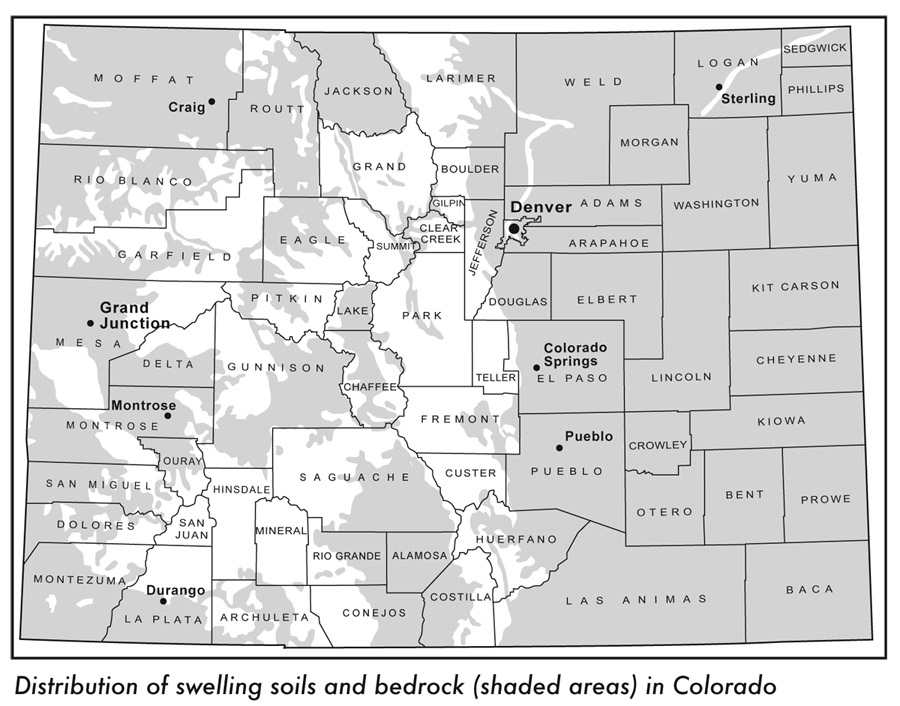So you’re ready to build and you found the perfect place for it…now what? Soils!
Colorado has a problem with soils. The issue revolves around how soil handles water; which is an important consideration in the construction of your own home. Sometimes soils are “expansive”. That means when they come into contact with water, they hold onto it…and expand. This is a problem because your house will not expand or contract with the soil. If you build your home into soil that is contracted, then when it gets wet the soil will expand and probably cause damage to your foundation and walls. It could push your home or floors upward, or push your basement walls inward.
Likewise, Colorado is known to have dry spells, and so the soil around your home could contract to lower levels than when you built. This can mean concrete slabs, sidewalks, and parts of the foundation would be left without the needed support, leading to cracking and potential failure.
What causes some soil to expand?
Ultimately it’s clay minerals that cause soil to expand. In Colorado the most common kind of clay mineral that causes expansion is montmorillonite or “bentonite”, as its usually called. Pure bentonite will actually expand up to 15 times its original size with water! But of course in nature you won’t find soil made from pure bentonite. Instead the bentonite mixed in with the soil will push the soil out around it when its wet, usually causing the soil in general to expand to 1.5 times its usual size or less. Usually the expansion is about 25% above its dry volume. It should be obvious that this could spell big trouble for your home if you are not prepared.
The foundation of your home is critical for maintaining structural integrity. Expansive soils–soils that have bentonite in them–can seriously compromise your home’s foundation, thus seriously jeopardizing its integrity.
To show you how big a problem this is in Colorado, check out this map from the Colorado Geological Survey.
The Colorado Geological Survey suggests that 1/3 homes built in Colorado sits on expansive soil. That during the 1990’s, over 15,000 homes in Denver were subject to lawsuits because of expansive soils.
Can you build on expansive soils? There is hope! Expansive soils are bad when you do not take the proper steps to prepare for them. But there are types of foundations such as Caisson or Pier foundations that work in swelling soils. There are also ways to prepare the ground around your foundation to better prepare for expanding soil. This is called “an overdig”. Just like it sounds, this means you remove a chunk of the soil from around your future home and replacing it with non-expansive soil. Ultimately these efforts make it possible to build in expansive soil. But they also increase the cost to build usually $20,000-$50,000.
How can you tell if the soil where you want to build is expansive? First off, remember it often has to do with clay content. Is the soil more sandy or does it have more clay? Second, when the ground dries do you see the soil crack or go into a popcorn type texture? This can be an indication of the soil contracting after expanding with water. But lastly, you have to get the soil tested to be sure. Soil is usually comprised of many different layers as you go down and sometime the expansive layer is not visible on the surface. Usually we find that upon purchasing a lot the selling agent will either have a soils report, or you can make the purchase contingent on the results of such a report.

